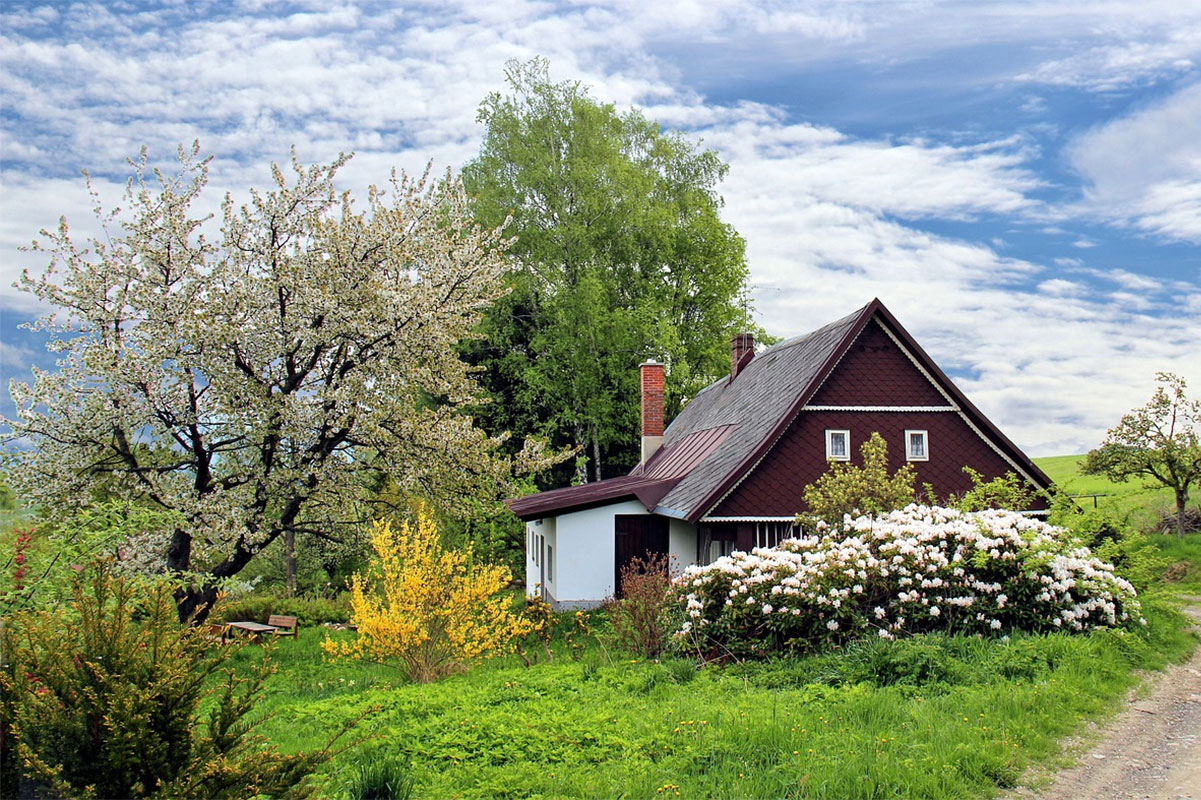Gardens are special spaces that have been around for as long as humans have been growing food. Over time, they have become more than just a space to grow plants, becoming a place for people to relax, focus and to connect with nature and each other.

They can improve our wellbeing and health in many ways, helping us feel calm and giving us a sense of purpose.
Many people become accustomed to multitasking and being totally plugged-in during their everyday lives, forgetting, as the expression says, to “just stop and smell the flowers”. Being outside in a garden can be a powerful self-care tool, requiring individuals to just focus on one thing at a time and be fully present in the moment.
Experts have been saying for years that being outside in nature is good for us. Just getting outside and going for a little walk, especially in a green space, is one of the fastest ways to boost health and happiness. It is a full sensory experience, helping people to feel more connected, grounded and part of something much bigger than themselves.
You get that healthy dose of vitamin D from the exposure to sunlight, which improves not only your mood, but it also benefits your bones and immune system. You are also likely to be moving when you’re outdoors, which is good for your physical health, and you are not bombarded with stimulation from screens and everyday life, which can help reduce symptoms of stress.
It shouldn’t come as a surprise, then, to hear just how good gardening is for us. There have been a number of scientific studies on the effects of gardening, sometimes called horticultural therapy, that have reported health outcomes and improved mental well-being. Research published in the journal Preventative Medicine Reports found that gardening has a wide range of benefits, including reductions in depression, anxiety and body mass index, as well as an increase in quality of life, life satisfaction and sense of community.
There are the physical benefits from doing manual labour – all the digging, planting and weeding – that burns calories and strengthens the heart. And then the psychological benefits like the genuine joys of gardening. Some people believe that getting dirt under your nails while digging in the ground can make you happy. The digging in the dirt stirs up microbes in the soil, which, when inhaled, can stimulate serotonin production, making you feel relaxed and happier.
Gardening itself has been used to help with people in recovery from addiction, whether that be drugs, alcohol, or a behavioural addiction. Depression and anxiety often goes hand in hand with addictions like substance abuse and problem gambling, as well as symptoms such as loss of ambitions and goals, according to data from this website. It is believed that gardening can become a distraction from the negative thoughts and cravings, helping to prevent a relapse. The new skills learned in creating a garden can also promote self-confidence, creating an important sense of purpose, something that can be lost in the cycle of addiction.
Even for those who aren’t recovering from addiction, but are suffering from stress, anxiety and depression in daily life could benefit from gardening. That sense of purpose, a chance to focus on something and put your mind to work with a goal and task in mind can be hugely beneficial to someone struggling with their mental health. Just to see something grow and thrive, and know that you have nurtured that thing, can lead to feelings of accomplishment and achievement.
Having a garden is a luxury, and for some, especially those in more urban areas, gardens are not an option. And while you can grow plants indoors, on windowsills or balconies, it’s not quite the same as getting outside in a green space. This is where community gardens can help. Since the pandemic, when people were stuck indoors and had limited access to outdoor spaces, community gardens have been rising in popularity. Not only do these foster the community feel and offer a space to socialize, but they also give those who do not have access to their own garden an opportunity to feel the benefits of gardening.
So, the next time you need a boost, go outside and play in the dirt. Grow some fruit or vegetables, nurture a plant from seed to flower, or do some weeding. And watch the benefits grow both in front of and inside you.









